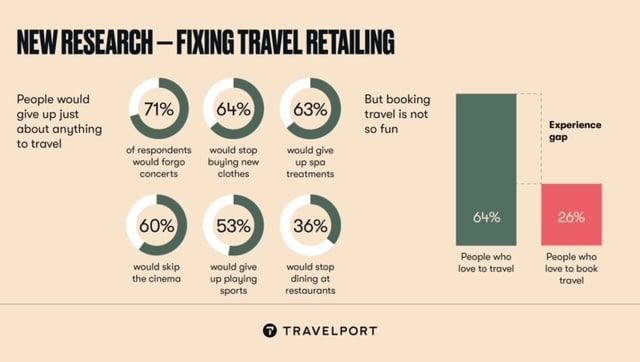
Travelport, a global technology company, today (22 March 2022) revealed a new survey that highlighted excitement to travel in 2022. In a study commissioned by Travelport and conducted by Toluna Research had thousands of respondents from seven different countries. They said they’d even be willing to give up some of their favourite things for six months or longer in order to travel.
Here are the results:
- 71% of respondents would forgo concerts
- 64% would stop buying new clothes
- 63% would give up spa treatments
- 60% would skip the cinema
- 53% would give up playing sports
- 36% would stop dining at restaurants
“While the last two+ years have been a significant challenge, the global travel industry recovered more than 50% of its gross activity by the end of 2021,” said Jen Catto, Chief Marketing Officer for Travelport. Our latest survey findings clearly demonstrate this, highlighting how many indulgences people are willing to sacrifice in order to travel again.”
However, not every aspect of the travel experience received the same level of enthusiasm. Results also showed a notable gap between the level enjoyment respondents get from going on holiday and the frustration they experienced when booking that very same trip.

- 43% of US respondents, the largest travel region, do not find booking travel enjoyable
- But 95% of that same group enjoy the experience of being on holiday
Globally, travel was ranked as the number one most enjoyable activity, but when it came to shopping for travel, the industry dropped to the number four spot, trailing the worlds of clothing, restaurants and electronics. On average, travellers’ visit a whopping 38 different websites before booking their trip.
“With demand for travel rebounding at its strongest pace since the pandemic began, it’s imperative the industry listens to its customers. Now is the time for us to fix travel retail, putting consumer convenience, digital experience, and breadth of choice above all.” said Catto. This study was conducted by Toluna Research, polling more than 2,000 respondents from the United States, United Kingdom, Australia, Hong Kong SAR, India, Singapore and the United Arab Emirates.



